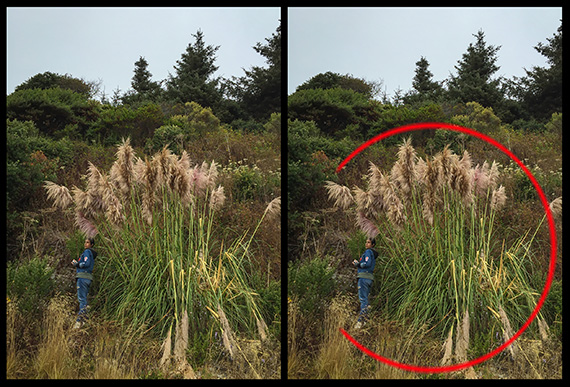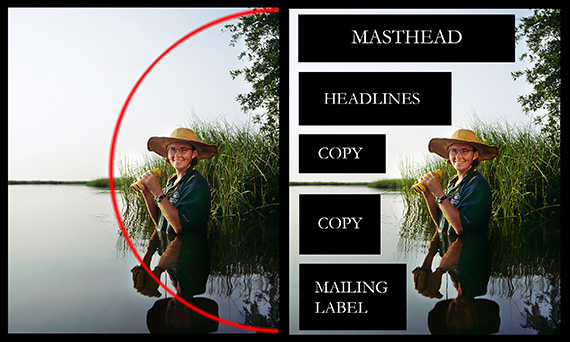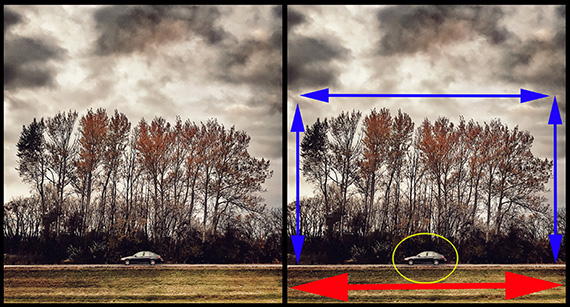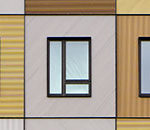This article is based on concepts from the Understanding Composition Guide which is currently 62% off if you want to dig deeper for further training.
Most photographers have heard of the S curve, and this example photo is a literal example of the concept.

Photo by Ashley Knedler
Fun Fact
The S curve did not originate with photography. It dates back to 4th-century Greek sculpture and was initially called the Praxitelean curve. Praxitelean was the first artist credited with using the S curve in his sculpture artwork.
It later became a tool used by the old master painters of central and southern Europe.
Eventually, it was finally picked up by—you guessed it! Photographers!
We now have several variations of this tool: the S curve, Z curve and the C curve. These artistic concepts are used in photography, painting, graphic design and illustration—any visual art medium.
Quick Tip
These curves don’t have to be literal, like the road in the first example picture. They can be created by using color contrast in your photographs.
S Curve

Photograph by Kent DuFault
The path in this photograph isn’t apparent, due to the angle of the camera. However, color contrast between the pavement and the surrounding landscape has allowed and S curve to emerge as a composition element.

Photograph by Kent DuFault
On the left is a photograph of the Hoover Dam as it appeared to the eye. The S curve is there, but it isn’t overly dramatic.
On the right, after using post-production to increase the color contrast, the S curve pops from the surrounding landscape.
Z Curve

Photograph by Kent DuFault
The Z curve is a derivative of the S curve. It is defined by sharper angles, like the letter Z.
Contrast, tone and color can create a path through a photo.
When you come upon a scene that you wish to photograph, close your eyes for a moment. Clear your mind.
When you open your eyes, note what you see first, where your eyes travel to second and, finally, where they come to rest. This hack can help you map the path of your intended composition.
In the example above, my technique told me that I envisioned was a Z path. This knowledge helped me choose the right lens and the correct camera point-of-view to establish my composition.
C Path

Photograph by Kent DuFault
A properly executed C path is a bit more challenging to learn. It can comprise color contrast, shape, texture or even the lighting and shadows.

Photograph by Kent DuFault
Graphic designers first championed the C path. It left negative space for other elements to be inserted, such as this magazine cover.

Photograph by Kent DuFault
It’s essential to recognize that these paths don’t always travel in an expected and predictable direction. The S curve might be sideways going from left to right or vice versa, for example.
In this last example image, the C curve faces downward. It is created by color contrast, format and negative space.
About the Author:
Kent DuFault is an author and photographer with over 35 years of experience. He’s currently the director of content at the online photography school, Photzy.com.
For Further Training on Composition:
So many new photographers think the key to great images is going to beautiful places and pressing the shutter button. But how you compose a shot is actually one of the most important parts of the equation. This in-depth guide is designed to give you a complete understanding of composition fundamentals, taught through 81 easy-to-follow pages of training, illustrations, and assignments. Currently 62% off for a limited time if you want to check it out.
Author Kent DuFault has been involved in photography since 1974, so he brings decades of experience right into your home. His images have won numerous awards, they’ve been published in magazines around the world, and he even operated his own commercial photography studio for three decades.
Deal ending soon: The Understanding Composition Digital Guide at 62% Off
Like This Article?
Don't Miss The Next One!
Join over 100,000 photographers of all experience levels who receive our free photography tips and articles to stay current:







Leave a Reply